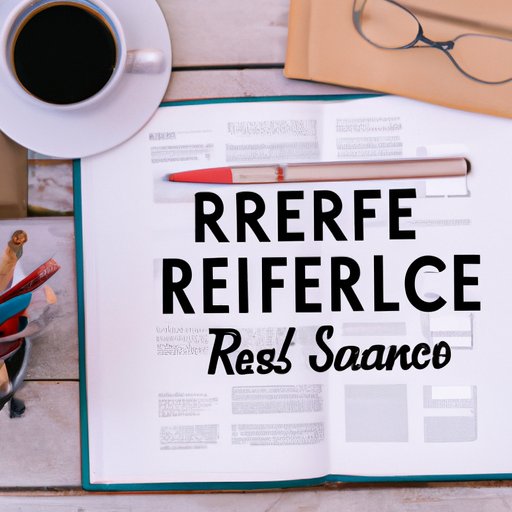
Introduction
Retirement is meant to be a time to wind down and relax, but many people fear that they won’t be financially stable enough to do so. Planning for retirement can be challenging, but knowing how to retire at 55 can set you up for the golden years of your life. This article will take a comprehensive look at different aspects of retirement planning, such as investment strategies, downsizing, retiring abroad, starting a side business, and maintaining good health, that can help you achieve financial freedom in retirement.
Planning Early: How to Start Your Retirement Savings Early and Retire at 55
One of the most crucial aspects of retiring at 55 is to start saving early. Planning and budgeting your finances will help you to understand how much money you will need to save in order to achieve your financial goals. Many retirement accounts, such as 401(k), allow you to make contributions to your retirement savings plan tax-free.
One of the strategies to save for retirement is through compound interest. Compound interest is interest paid on both the original amount of money and the interest that the money earns over time. Another essential strategy is to max out 401(k) contributions. You can also consider opening an IRA account.
If your employer offers matching contributions, consider taking advantage of this benefit, as it is like free money.
Smart Investment Strategies: A Guide to Building a Solid Retirement Portfolio
One way to build a solid retirement portfolio is to invest in a diverse range of assets and to allocate your investments in such a way that you are not overexposed to a particular asset class. A common rule of thumb is to subtract your age from 100 to determine how much of your portfolio should be in stocks.
Choosing low-fee investments is another way to build a solid retirement portfolio. The lower the fees, the more money you will have to invest in your future. For example, exchange-traded funds (ETFs) can offer low fees and excellent diversification.
Managing risk is also important. It is necessary to balance portfolio risk and reward according to your financial goals, age, and retirement plans. You may consider discussing your investment strategy with a financial advisor, who can provide you with professional advice.
The Benefits of Downsizing: How to Live a Comfortable Retirement on Less
Downsizing does not mean settling for less; instead, it means minimizing your living expenses by selling your big house for a smaller one or even relocating to a less expensive area. Downsizing can significantly impact your retirement savings and increase your potential retirement income. Not only does downsizing reduce monthly expenses, but it can also save you money on maintenance and utility costs, leaving you with more money for travel and other leisure activities.
When downsizing, consider a few things, such as location, amenities, proximity to family and friends, and transportation. The sale or disposal of some of the items you no longer need can provide a great deal of cash to go towards your retirement dreams.
Retiring Abroad: The Pros and Cons of Living in a Foreign Country During Retirement
Retiring abroad is an excellent alternative for those who find living costs too high domestically. Many countries offer competitive tax breaks, and it is now easier than ever to retire abroad. Some of the advantages of retiring abroad include cost savings, a new environment, and even cultural exposure. However, retiring abroad does come with challenges, including language barriers, cultural differences, and sometimes stricter immigration policies.
Research different countries healthcare policies, and the cost will also play a significant role in retiring abroad. Weigh the pros and cons of different destinations before deciding to retire abroad.

Starting a Side Business: How to Supplement Your Retirement Income and Achieve Financial Freedom
Starting a side business is an excellent way to supplement your retirement income. The beauty of a side business is that it can be whatever you want it to be. Starting a side business can be fulfilling financially and emotionally, and it can also lead to financial freedom.
There are different ideas of businesses you can consider starting. The most popular side businesses are coaching, teaching, or consulting in subjects where you have expertise. Another favorite is finding a passion that can make money, such as baking or crafting. Catering to a specific audience can help attract customers who are interested in what you have to offer.
It is essential to consider the tax liabilities and regulations surrounding starting a business before venturing into it.
The Importance of Staying Healthy: How Taking Care of Your Health Can Help You Retire at 55
Being healthy is vital for a long and fulfilling retirement. According to studies, healthcare costs for retirees are the second-highest expense after housing. Taking care of your health helps reduce healthcare costs and ensures that you live a happy life in retirement.
Exercise is an essential factor in staying healthy. Exercise helps reduce the risk of chronic diseases and helps improve mental health. Eating a balanced diet and controlling alcohol consumption can also improve your health. Taking advantage of preventative care visits to the doctor can ensure that any health-related issues are identified early and the burden of health care costs minimized.
Conclusion
In conclusion, planning for retirement involves several aspects, including saving early, investing smartly, downsizing, retiring abroad, starting a side business, and taking care of your health. Ideally, it is always best to start planning and making the necessary adjustments early to avoid surprises in the future. Retirement is not a one-size-fits-all plan. All aspects of retirement planning should be personalized to fit individual circumstances.
We urge our readers to take action now and start planning for retirement. The most fulfilling and successful retirements are those with a well-thought-out plan and preparation. Good luck, and here is to a comfortable and financially secure retirement.





